Arrival day:
Mahoma trek is an affordable option that involves scaling the lower slopes of Rwenzori Mountains in the central circuit. Arrive at the base camp. Guests will be accommodated at Ruboni community camp or any other lodge within a short distance from the park gate.
This trail takes trekkers through three vegetation zones of the mountain including the savanna grassland, Afro-montane Forest Zone, and the bamboo zone. However, at some points, trekkers have a chance of finding spots of the heather vegetation where they will find plants like the tussock, and Lobelia. At these open points, guests will have a chance of taking beautiful views of the higher peaks. We offer a complete package. This package comes with an experiences English speaking mountain guide, porters, park fees, food, energy, private chef and all cooking gear.
This is the best day to take a briefing about the 2- days Mahoma trek, and check your trekking packing list. You can also choose to acclimatize by taking some of the community walks or in the evening you can attend the cultural festival to get to know the local people more.
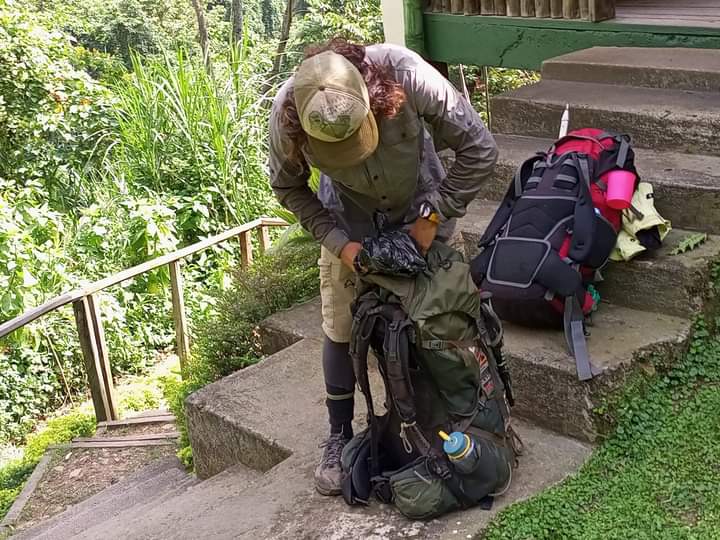
Everything must be together before dinner. Those arriving on the same day of the trek will need to arrive by 8:00 am on the trekking day, to be able to brief them and check their luggage in time. the trek starts by 9:00am
Day 1: From the base Camp to Lake Mahoma Camp
The first trekking day of the 2 days mahoma trek starts from (1615m) at the base camp to (2990m) Today’s night camping will be at Lake Mahoma. Lake Mahoma is the largest and most accessible of the over–twenty lakes in the Rwenzori Mountains.
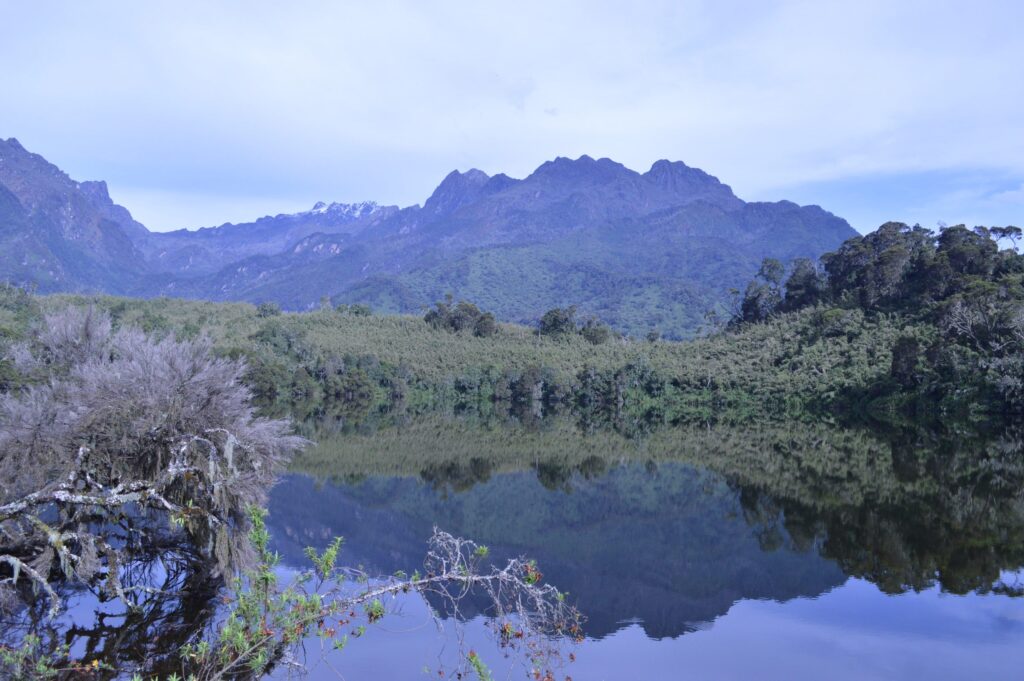
The common vegetation on today’s trail is bamboo sparse trees and some mountain shrubs. The trail will sometimes lead you through the mountain elephant tracks. Look out for the fresh foot marks of this large mammal. Mountain elephants are known to be shy and more aggressive. This makes it hard to find. Lucky guests have sometimes spotted them at a distance as they take a drink from the hot springs. As you near the lake you will find some unique alpine vegetation such as the giant Lobelia, tussocks, and everlasting flowers.
On this day, you will complete the Mahoma trail trek ending at the park gate to the base camp. With a ranger, the morning is a good time to take a short walk that gives you an opportunity to take some pictures of the scenic lake views.
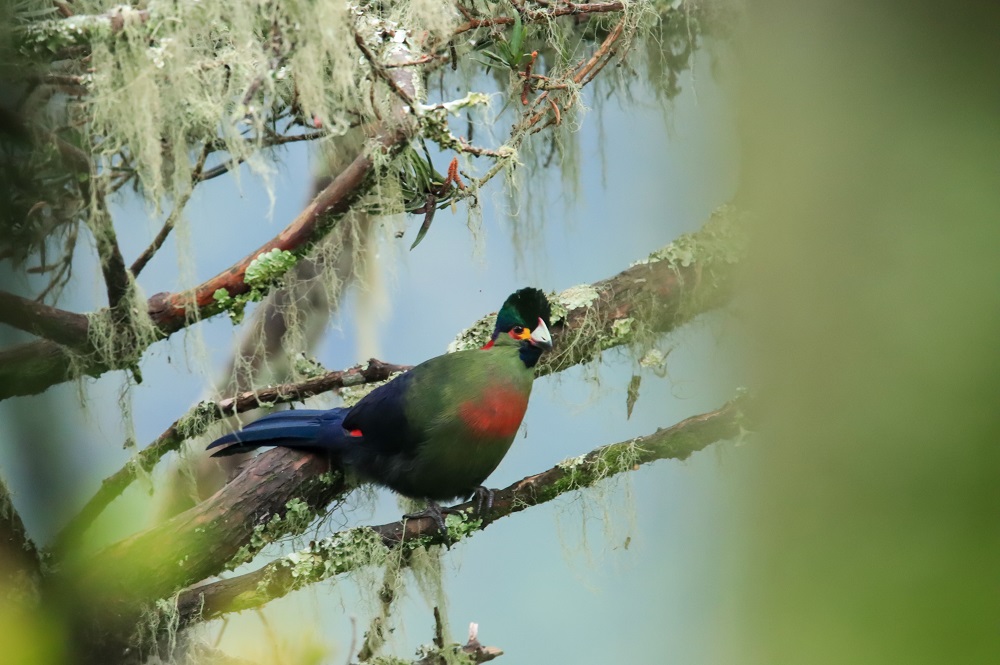
Take the suggestion of the ranger which walk will be the best based on his knowledge of the area. Return to breakfast and then descend through the forest zone with a mix of bamboo, heather, and the lichen handing off trees like “old man’s beard”, from Lake Mahoma to Omukakiza camp. At this camp at (2,977m.) you will have some lunch then proceed to the park gate where the trek ends, and head to Ruboni community camp for dinner and overnight.
Included:
Excluded:
Forty-five minutes from the Ruboni Community Visitor Center is a lovely rock-enclosed natural hot spring, with lukewarm, tepid water that will relax your tired bones after a strenuous walk in the Rwenzori Mountains or a long drive on Uganda’s rough roads.
The walk is along the road that leads to the park boundary, lined with lovely forests and indigenous homes of the Bakonzo people. Three or four people fit comfortably in the pool, which is quite shallow and sits in the rocky bed of the Mubuku River, with scenic views of the Portal Peaks. Come join us for a soak
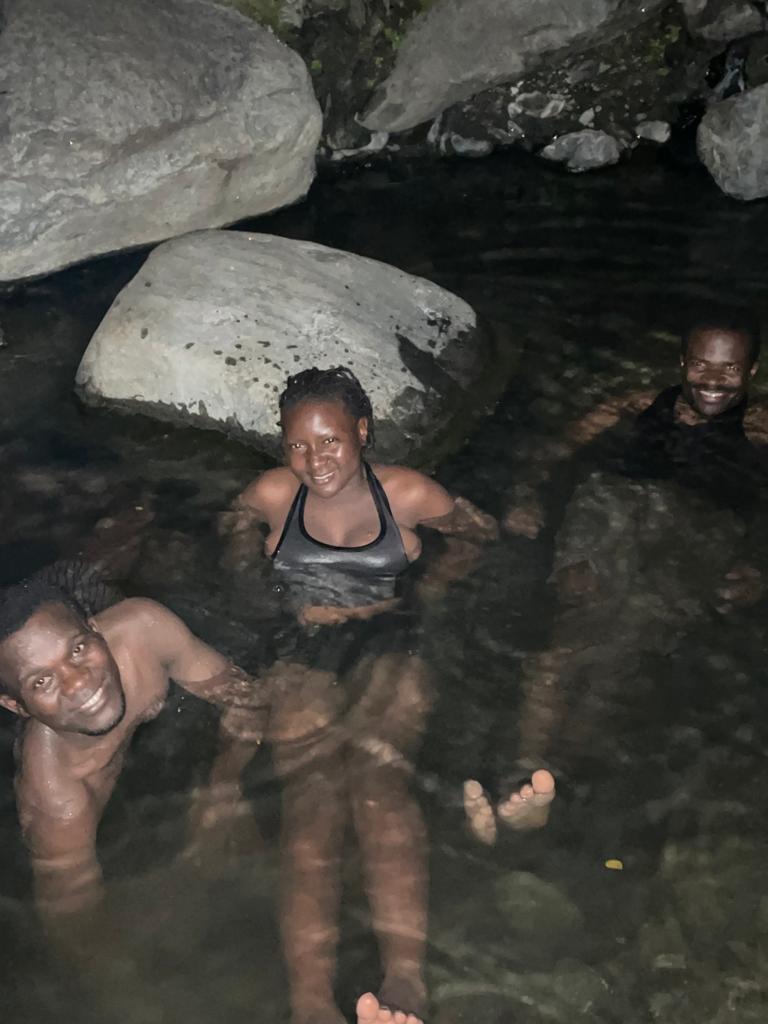
On arrival at the community visitor’s Centre, the local guide will be assigned to check your packing before they take you to this beautiful spot that will give you the most rewarding experience of relaxation in the heart of nature. Those with a car may choose to drive to the equator snow lodge located next to the hot spring. However, a walk is rewarding as it gives you an idea of the local life when you meet the people on the farms, in the local trading centre doing their errands or in transit to and from the fields. On arrival, take your spots on the rocky shores of the pool and soak for about an hour before you return to your hotel at the community visitor’s Centre.
From the Centre, take time to shop for some handicrafts and other products made locally, such as coffee, banana wine, and honey or vanilla pods. Other optional activities include joining the evening traditional dance performance
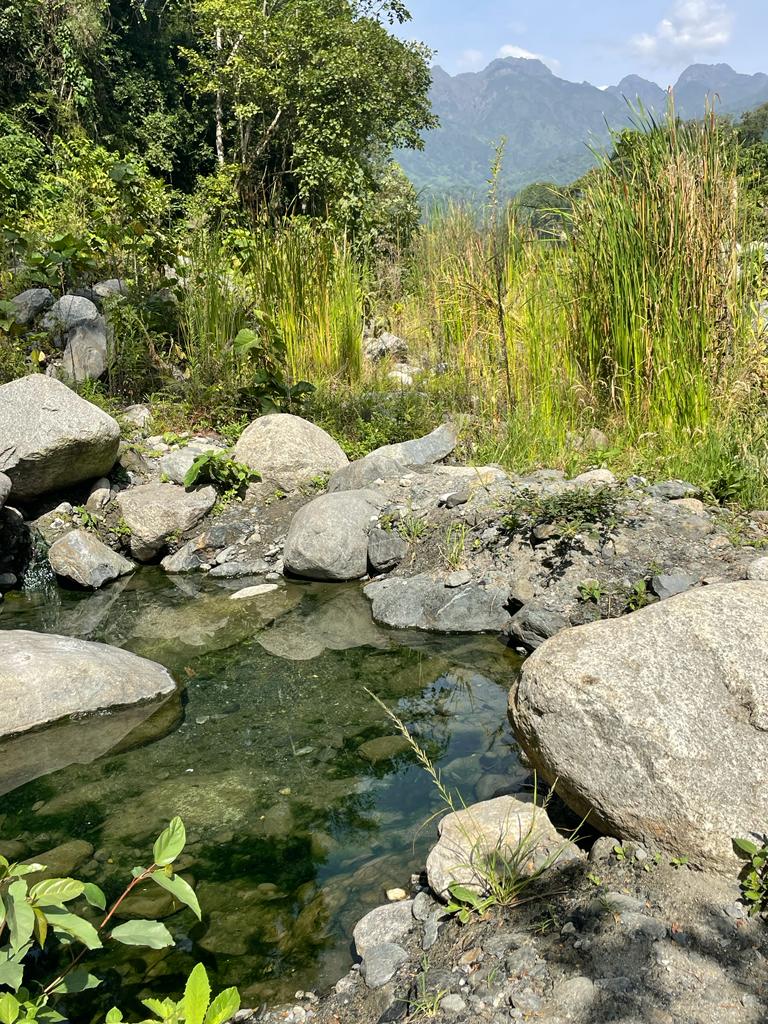
Price per person:
The tours are priced differently if they are taken either during the day or at night and they take about 2.5 hours altogether.
Daytime activity 30,000 UGX
Night time activity 40,000 UGX
Important Note: Accommodation for this holiday can be offered by Ruboni community camp, Rwenzori Homestay, the community visitor centre for affordable camping or any other lodges in and around the Rwenzori gateway National park.
This is a short wildlife trip with two days in the Albertine rift of western Uganda. The trip goes to Queen Elizabeth and Rwenzori Mountains National Park, showcasing the scenery, mountains, and unique animals ranging from the cats to the three-horned chameleons. It is probably the best trip you will experience a cocktail of people, wildlife, mountains and scenery than anywhere else in Uganda. The trip is flexible and can be taken in full or in part, in case one is interested in just one of the two parks. this trip is tailored to start from Duchess Hotel or any other hotel in fort portal city but can be modified to start from anywhere in Kasese or at Rwenzori Basecamp.
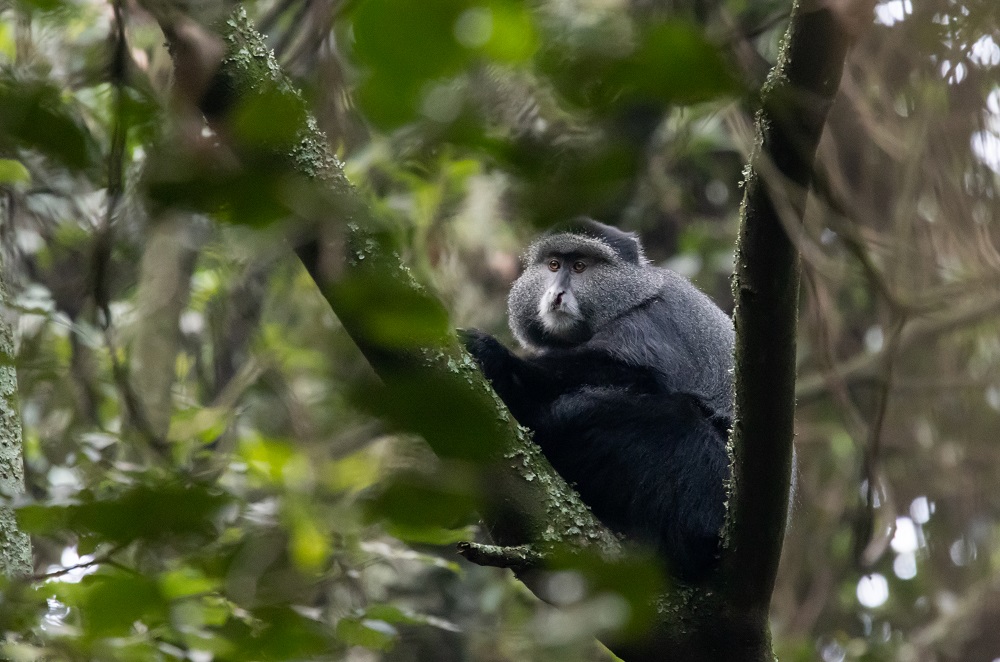
Day 1: Rwenzori Mountains National Park
Early morning (6:00 am) pickup and transfer to the Rwenzori base camp on a 75km journey to Nyakalegijo gate. Arrival at Ruboni community Visitor centre at 7:00 am is a good time to start the nature walk from Nyakalengijo gate 1646 m to Nyabitaba Camp 2632m.
On arrival, take your packed lunch, a walking stick and a bottle of water. After a briefing with the local ranger and guide trek through a forest canopy and open areas offering views as you head to Nyabithaba (5-6hrs).
You will take a break at river Mahoma to refill your water bottles and have a snack before a 1 hour ascend. A common site on the trek is the rich plant and tree life in lush green vegetation, river sights and sounds. You also have a high chance of finding birds, monkeys, elephant tracks and sometimes chimps’ spoors and sounds.
Your keen guide will work hard to look for the unique small animals and insects on the trail and if they are lucky will show you the elusive three-horned or strange-horned chameleons, snakes, butterflies and other fauna and flora.
After returning to the base camp, you will connect to Kiwa heritage for a late afternoon swim in this natural hot pot near Kasese town. Spending up to two hours in the hot spring will give you the best feeling of being closest to nature. You will then return to fort portal for dinner and overnight
Trip includes:
Trip excludes:
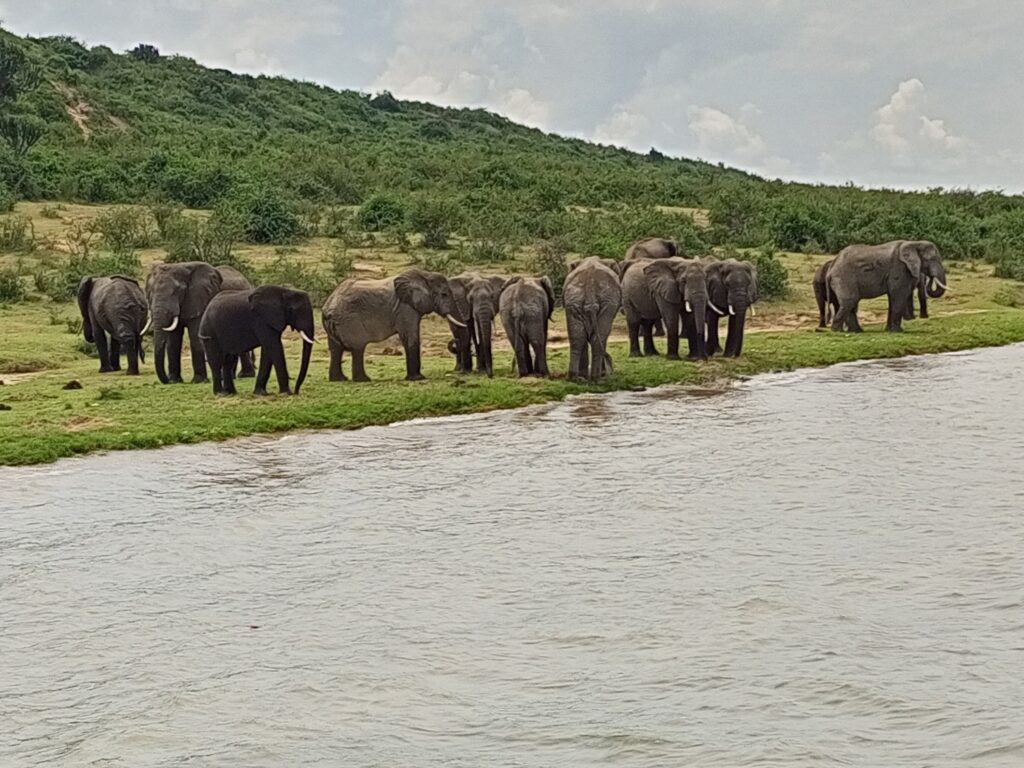
Day 2: Queen Elizabeth National park
After an early breakfast, start off from fort portal at 6:00 on a 100km heading to the Kasenyi park gate. The park gate opens at 7:00 am for guests to start the search for wild animals on a beautiful landscape lying between the Rwenzori backdrop in the west and the rift valley escarpment in the east. The common animals on these Kasenyi tracks include cats (leopards and lions), hyenas, elephants, buffalos, water bucks, warthogs, cobs, birds and others. For a sure deal on finding the lions, the lion tracking experience is ideal (optional at 120$pp). The game drive ends
After the game drive, you will head to Mweya or Katunguru for the boat cruise on the Kazinga channel, a paradise of wild animals cooling off. Kazinag channel is probably the richest wildlife section of Queen Elizabeth and the Albertine rift. Both the scenery and wildlife make it a wonder in the savannah. It is a 40 km, the natural freshwater way that dissects the park into two sectors, north and south. During the two hours boat cruise on the Kazinga channel, you have a high chance of viewing wildlife on the banks cooling off. The nature on the channel banks includes elephants, buffaloes, hippos, waterbucks, crocodiles, monitor lizards and an assortment of birds ranging from kingfishers, yellow-billed storks, African skimmer, falcons, black great white and pink-backed pelicans, open-billed stork, great and long-tailed cormorants, darters, Jacana, and other seasonal migratory bird species from Europe.
After the boat cruise, retire to your hotel for dinner and overnight.
Price: 400$ per person (based on three people going)
Trip includes:
Trip excludes:
This is a short-time trekkers favorite! The trek is on the lower slopes of Rwenzori mountains. It brings mountain lovers to the mountain scenery, forests, and lake views. The trek takes guests through the rich Afro-montane forest and Bamboo zones of Rwenzori mountains. It is also a birders choice as you have chances of spotting the little colorful birds, the Rwenzori Turaco along with other small animals unique to Rwenzori such as the chameleons, monkeys and insects.
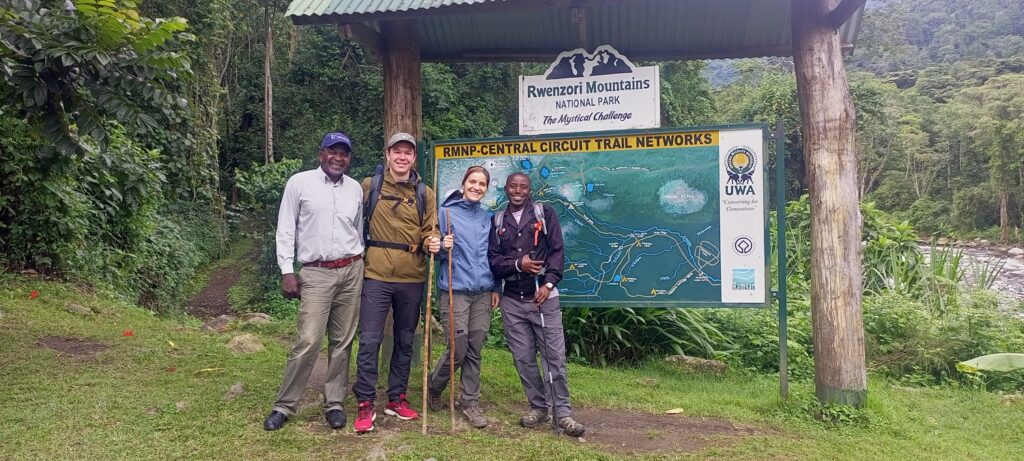
The Rwenzori overnight trek is on a return trail that goes through the Rwenzori central circuit gate. The trail goes through Nyabithaba, then goes off to lake Mahoma and return back to the park gate through Nyabithaba. It is the same trail that continues on the Mahoma trail trek, for those who want to go for an extra day and make this loop.
Day 1 – Arrival at Ruboni community camp, dinner and overnight.
Day 2 – Nyakalengija gate1646m – Nyabitaba 2632 m:
On the first trekking day, we start Rwenzori climbing from Ruboni community camp. After briefing with the local porters and guides, you will trek from 1646 meters to Nyabitaba hut at 2632 m Dinner and overnight at the mountain camp. (5-6hrs)
Day 2 – Nyabitaba 2632 m: – Nyakalengija gate1646m:
After breakfast at Nyabitaba, you will trek through the mix of bamboo and tree forest to Lake Mahoma to take the great views and picture moment over the lake. on this trek, you have chances of finding Rwenzori Turaco birds chameleons, primates in the canopy, elephant spoors, birds and or ducks swimming on lake Mahoma. Lake Mahoma is the largest of all the lakes on mount Rwenzori. After a good time at Lake Mahoma, return to lunch at Nyabitaba and then descend to the Rwenzori National Park headquarters Ruboni community. (3hrs)

295$ (A minimum of 2 people going)
Price includes:
Price excludes:
You will be impressed when you get a chance to visit the Batwa and live like them For one day or just hours, in the hilly communities overlooking the Bwindi forest. You will be inspired by how these indigenous people have managed to coexist with the Bakiga tribe and can now have a smile despite the many changes that have happened in their life since they were displaced from the forest, their original traditional home! It is a story of joy that you won’t forget all your life.
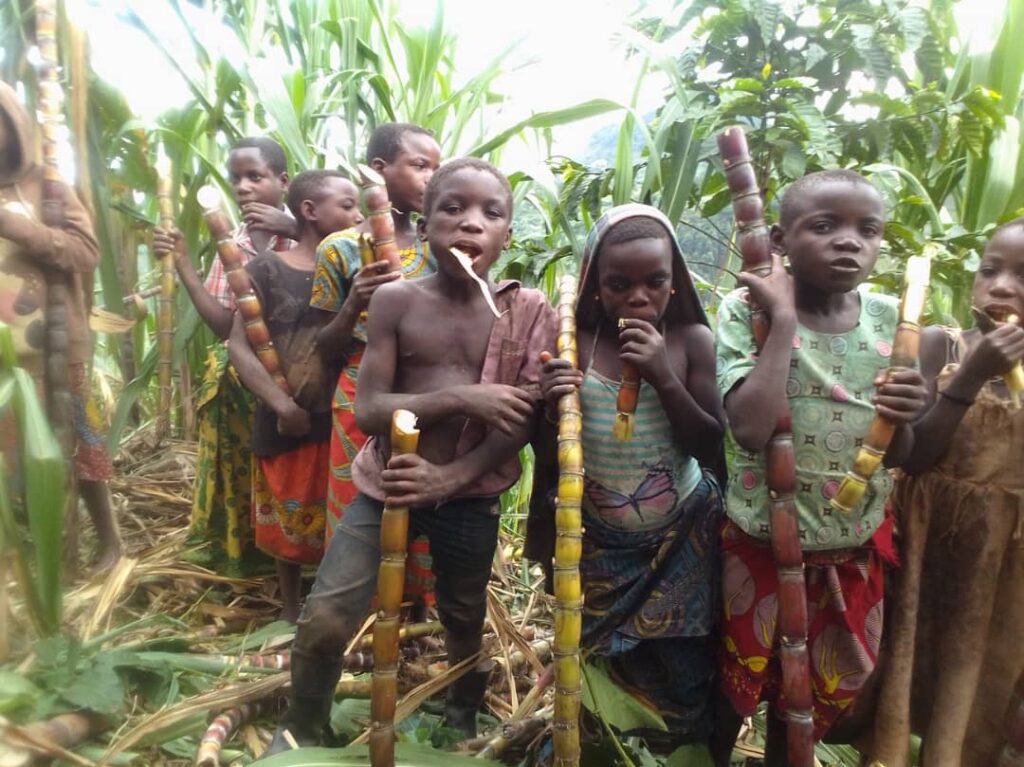
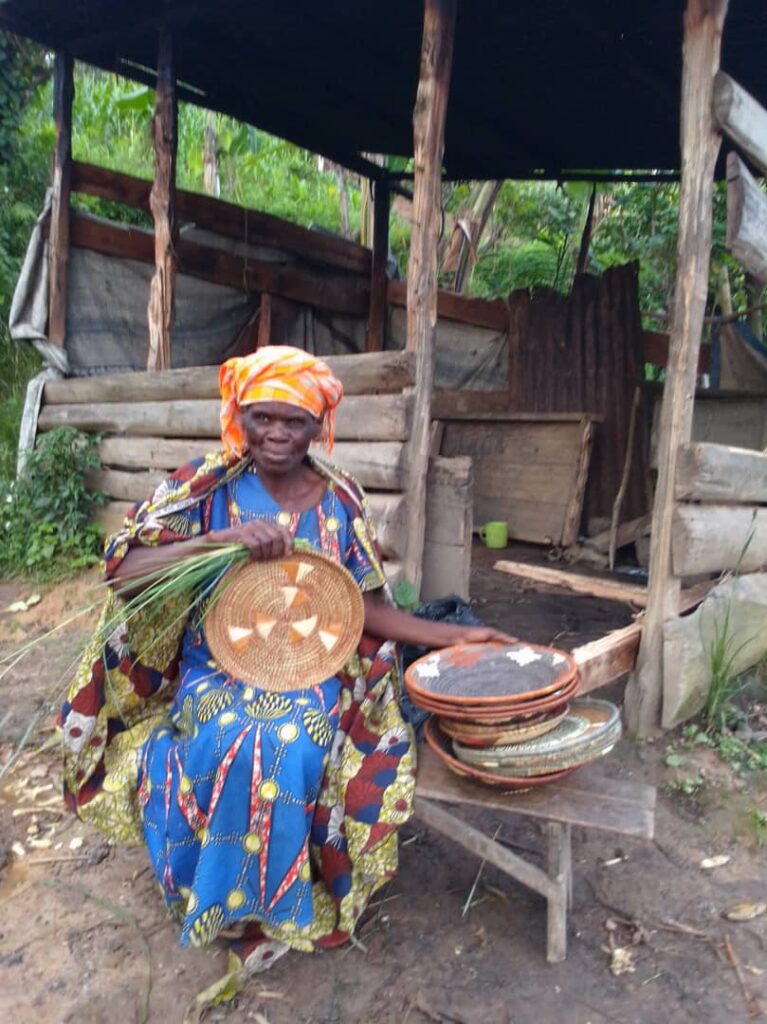
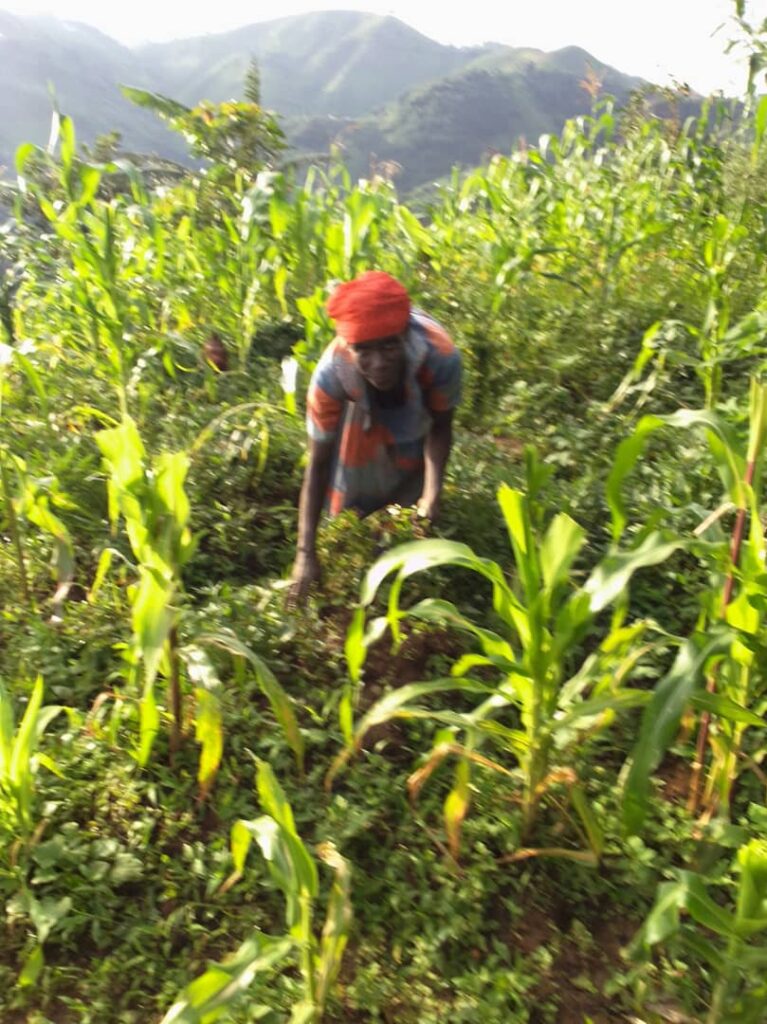
Most Batwa people can’t read, write or speak English since they haven’t had much opportunity to attend a modern school. However, they are a very innovative group of people that have mastered their life both in the forest and as they adapt to the life outside the forest.
Fortunately, Mr. Nyasio, a local Mukiga young man, and his family have been of great help to the Batwa. He has lived with them all his life. They share the same village since his father offered the Batwa part of his land, to live on when they were displaced from the forest in the 1990s. Through a series of activities at Sanuriro village, Nyasio shares the story of his life with the Batwa and the many achievements he has had with the Batwa positively contributing to the local life, in Sanuriro village.
You will spend time with the Batwa as you tour the local farms of sugarcane, bananas, yams, mountain cows and goats, and fish ponds. Nyasio has trained the Batwa to introduce them to farming. You will have an opportunity to share the farming lessons, and later, stay with the Batwa at the social center that they have established on this farm. At the social center, you will enjoy the music and dance sessions before you head back to your lodge.
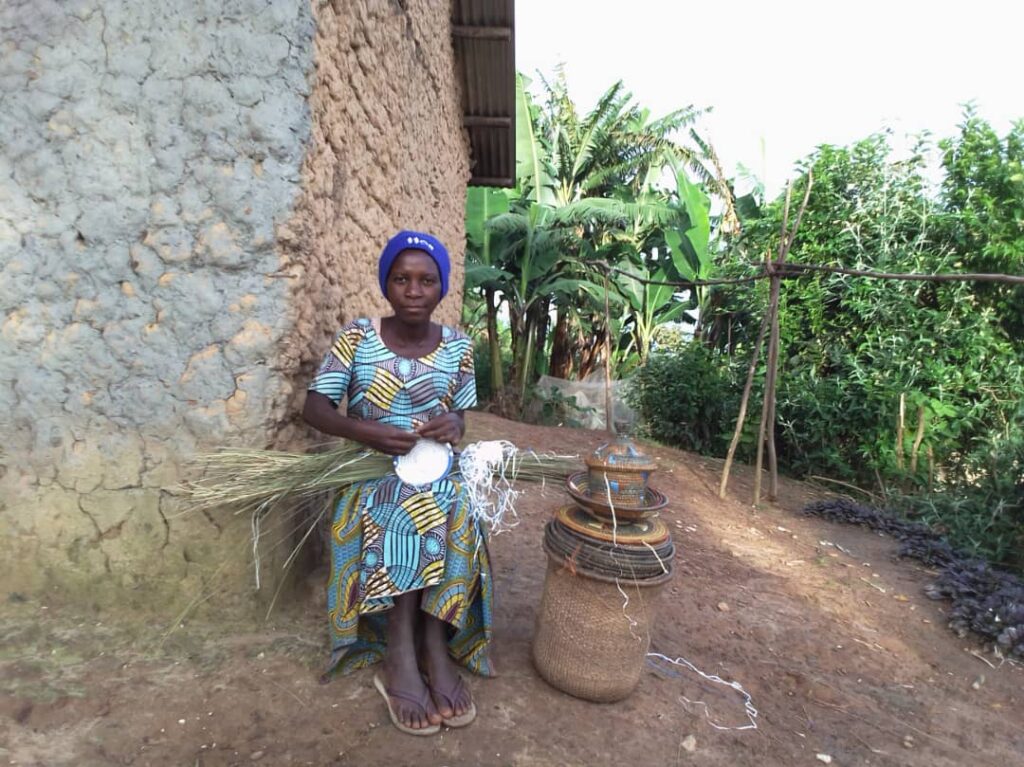
The tour is charged either as a full package or the individual activities. You will be required to pay a little extra to buy local gifts to support the Batwa innovation. All the tour payment is retained within the village to support the farm and livelihood activities of this Batwa community.
Important Note:
The community visitor’s center in the Rwenzori foothills is the place to be if you want to get the best out of your visit to Rwenzori. It is the first of its kind in the region, where you can reach and plan all the components of your Rwenzori trekking or experience visit.
This visitor center is inspired by the Best Tourism Village upgrade initiative of United Nations World Tourism Organization (UNWTO). The community has put it as a model and one stop center for travelers who want to explore the Rwenzori nature, landscapes and cultures in the shortest time possible.
When visiting Rwenzori, you no longer need to spend days or months planning your trip to Rwenzori, you just need to reach out to or visit the community visitor center and you will find all the information and logistics in one place.
The visitor’s center is built for the locals to meet their visitors in the most respectable way. While here, the community shows you around the village and a cross-section of Bakonzo life in just one spot. If you have more time, they take you on short guided tours around the village in the foothills, where you can spend from a few minutes to several hours as you explore the nature, culture, scenery, and landscapes of the Rwenzori Mountains.
From here, they also offer volunteer placements in a range of projects including traditional farming and agro-processing, enterprise development, conservation and tourism, women empowerment, skilling, girl child empowerment, and education. These volunteer opportunities are ideal for people who want to learn as they help change the lives of the local people. While at this center, the locals feel at home and the visitors feel very welcome. This is yet the best way to experience in the Rwenzori Mountains.
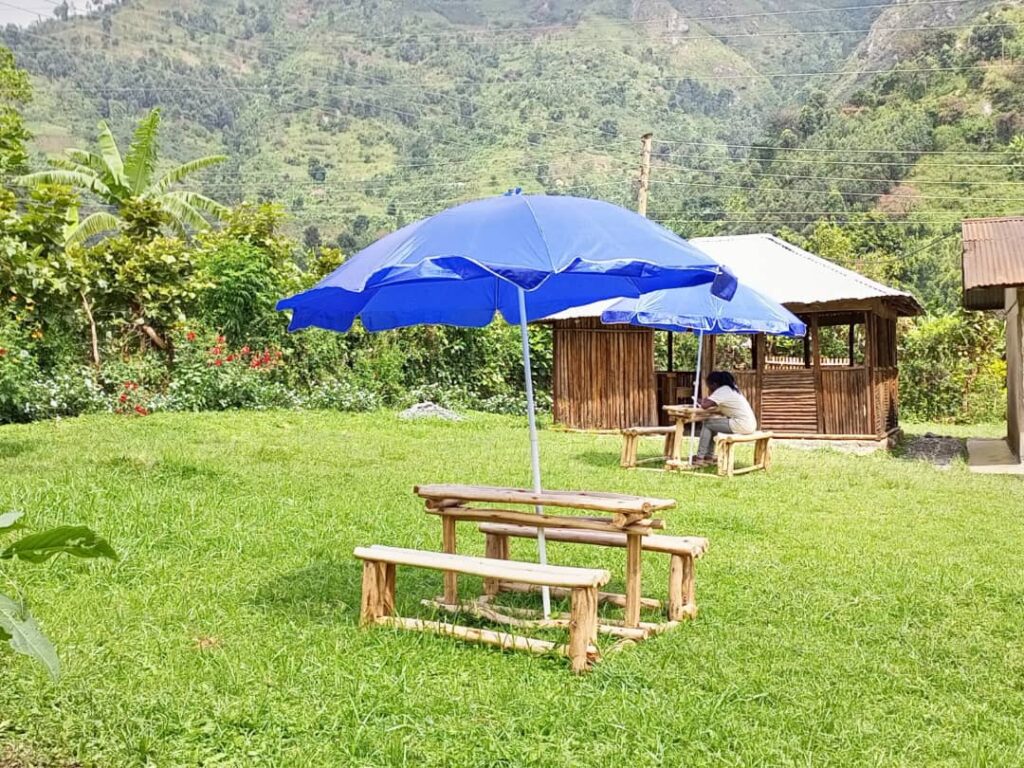
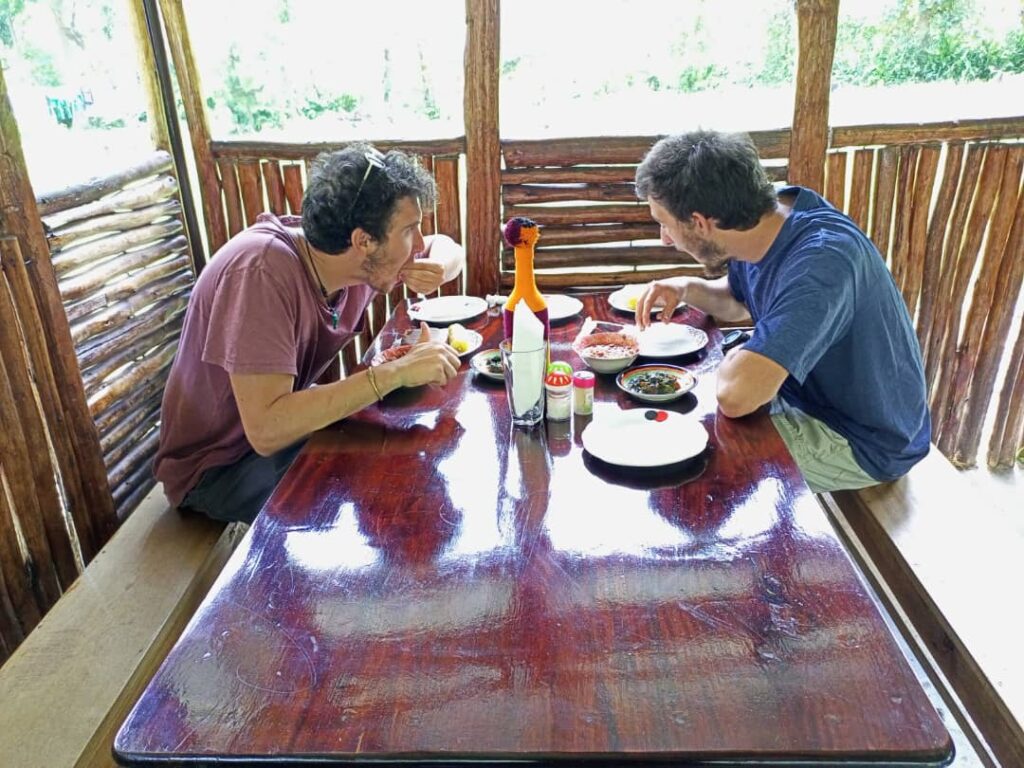
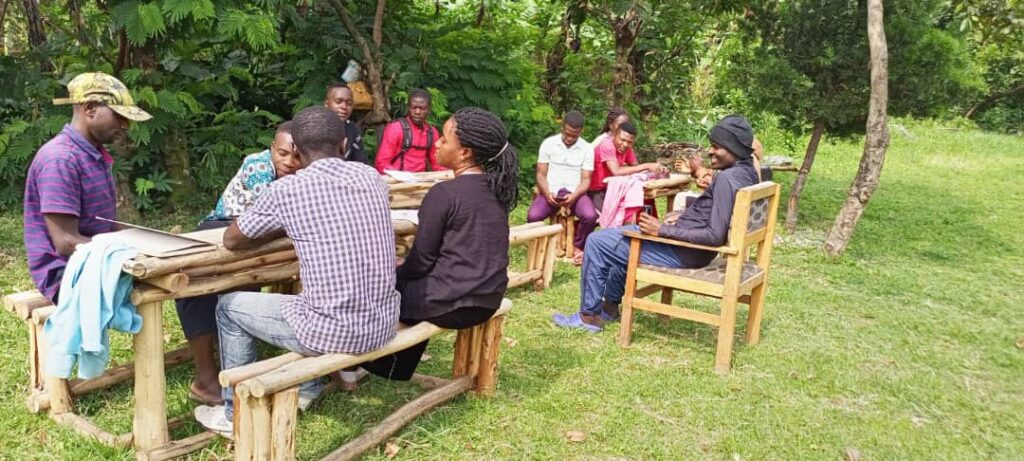
Experiences:
This is what you will experience when you visit the Ruboni Community Center.
Handicrafts purchase: A handicraft shop is stocked with locally made handicrafts. It is the ideal shipping center for gifts to use in your home or bring back home to your friends and loved ones.
Local meals, and snacks: Our kitchen offers only Ugandan dishes. Our meals and snacks are made by the local people with the local ingredients made to the traditional test that suites our guests who want to enjoy the local Ugandan cuisine. from making a Rolex to the most complex local dishes, you can also participate in the cooking process (prior booking) as part of the Ugandan food experience.
All sorts of drinks: A well-stocked bar with most of the modern and local drinks. our snack bar also offers hot drinks such as tea and coffee. in the local village, you can also participate in the experience of making the local drinks at a small tour fee.
Tour information: We have an info point about the short and long tours, treks, and safaris in the Rwenzori foothills, mountains, and queen Elizabeth national park. on request, our experienced team will also help you on how to travel to any part of Uganda. All information to our visiting guests is free of charge. Remote guidance on travel consulting around Uganda for guests who are not intending to visit is at a small fee of 10$.
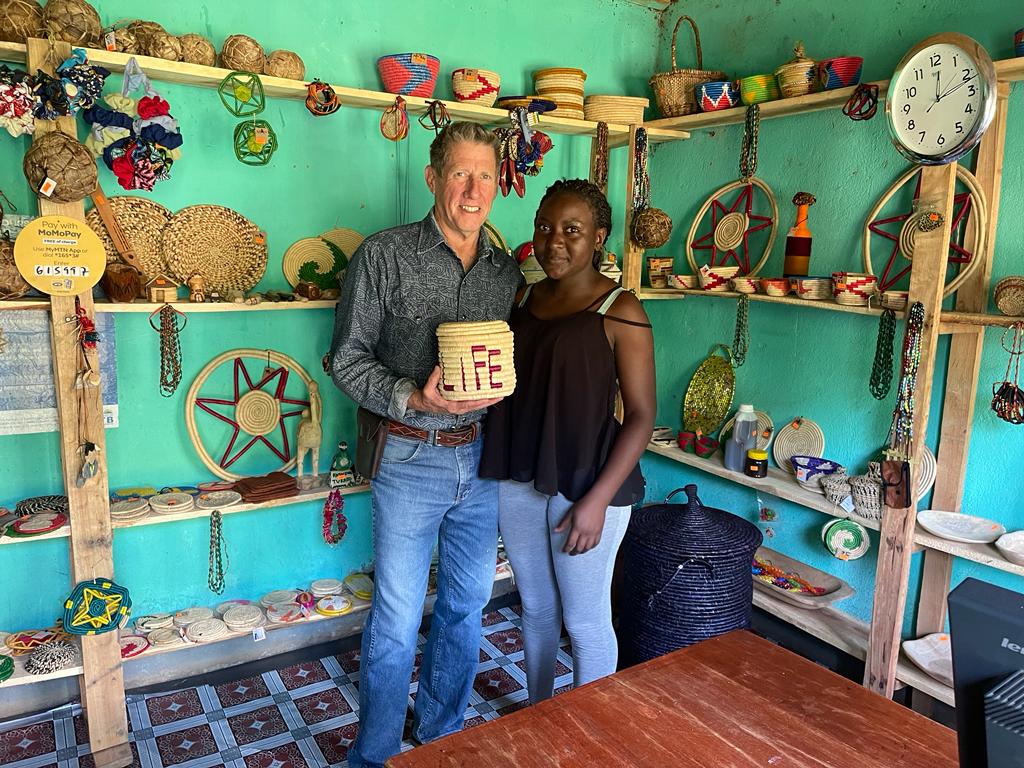
Entrance
The minimum entrance fee is 1000 Uganda shillings for members and 4000 Uganda shillings for none members. The entrance fee enables you to get the benefit of this open networking spot in the village.
It is possible to just arrive and enjoy the center’s services. However, depending on your interest, such as taking tours, participating in the experiences, or doing longer treks, you may need some items that you must pack, just in case. These include
Katwe community is one of the famous places that carry the history of the Kasese district and Uganda. Over the years, Katwe has not changed much and you’re yet to prove why during your visit. It is one of the privileged communities located inside Queen Elizabeth National park, giving visitors an opportunity to explore both the nature and culture of Uganda. The destination is rich in nature and culture. The local community guides experience of this village will be showing you around to explore the variety of holiday opportunities offered including; Traditional salt mining, fishing and boat cruises on Lake Edward, birding at Lake Munyanyange where you can find the migratory lesser flamingos in season, wildlife viewing on the shores of Lake Edward, and the local culture of the people who live in Katwe.
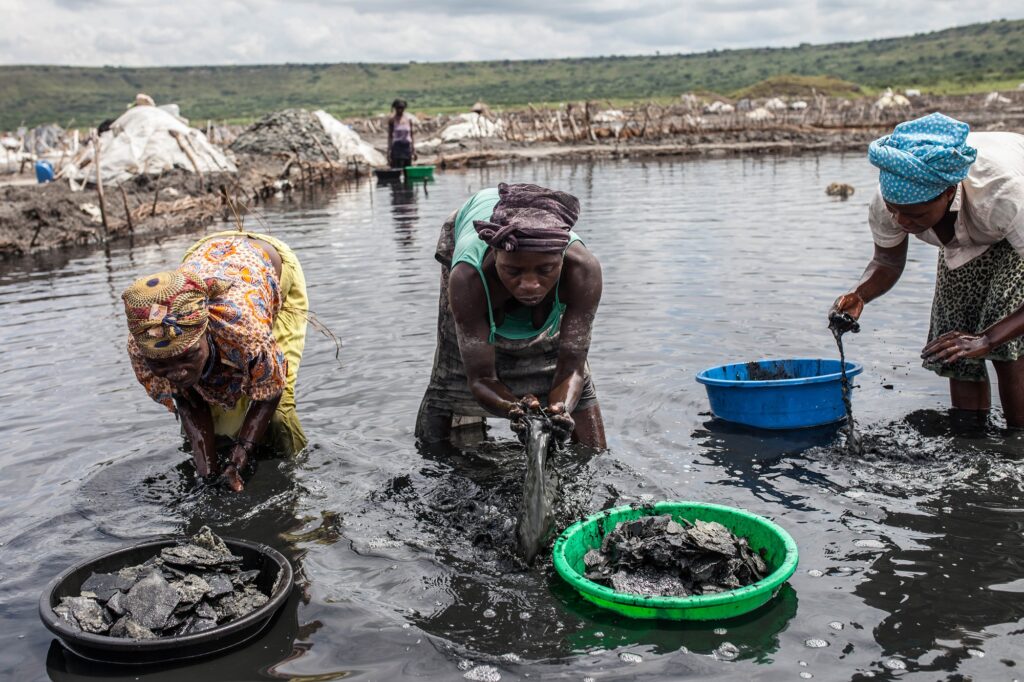
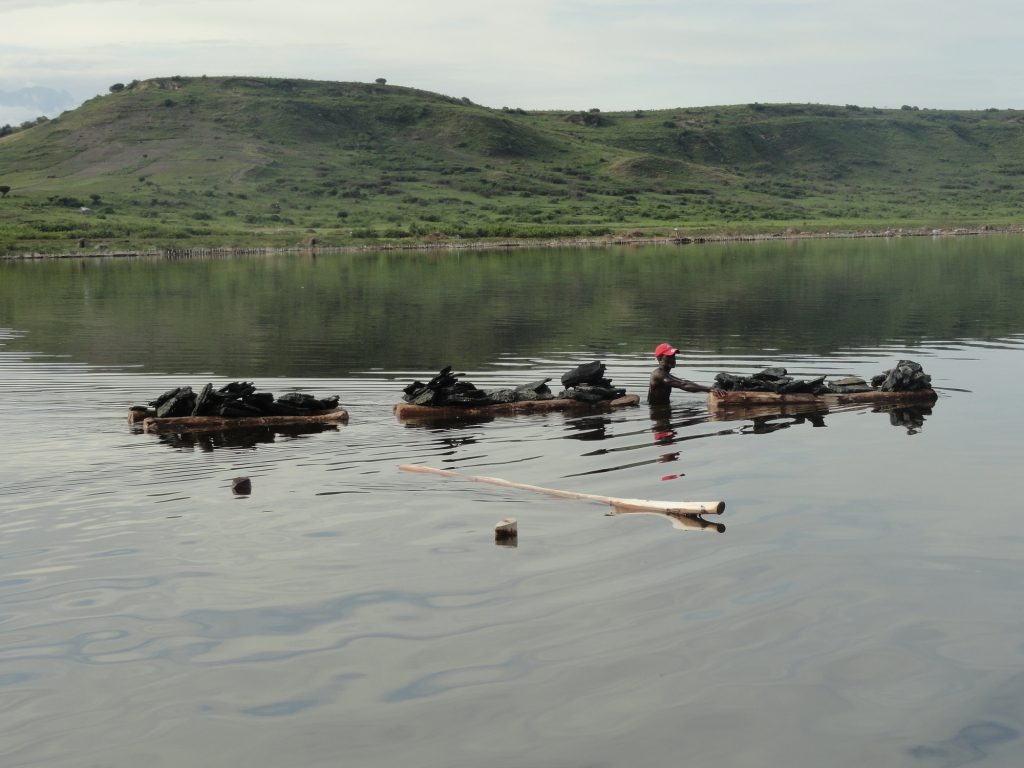
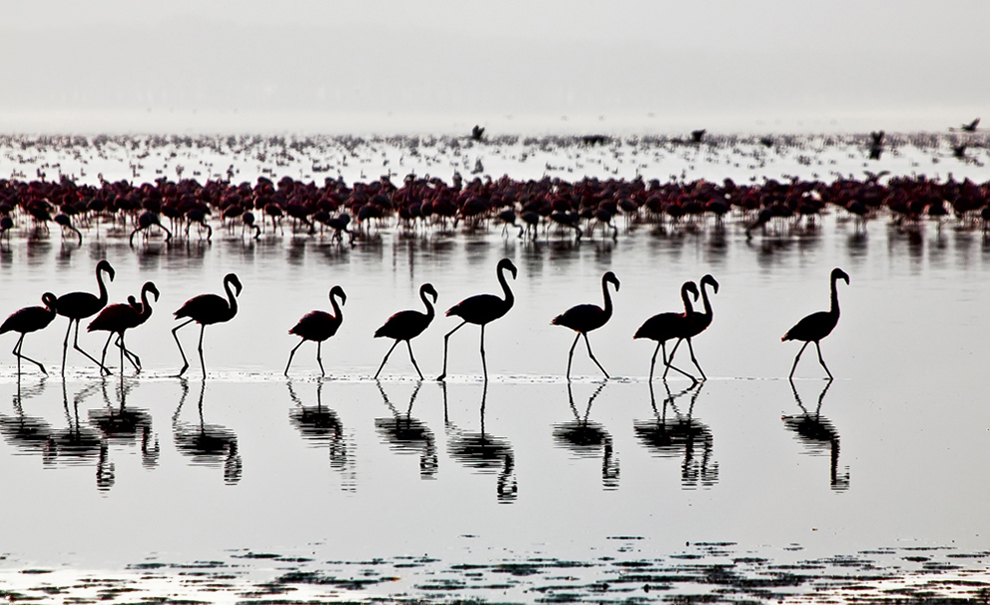
I know people who love culture, nature, wildlife, and great scenery would never want to leave Katwe when they visit. During the visit, the guides from Katwe Ecotourism Information center (KETIC) will take you on the tour of your choice. You can take all or choose from the following activities;
Activity 1 – Arrival in Katwe is like going out of the planet earth. all things seem different in the first place. You can arrive any time during the day. after orientation at the information center, you will head to salt mining as the main story carrying the heritage of this area. You will learn the science of salt mining from residents that have grown from slat proceeds all their life.
Activity 2 – After the salt mining tour, you can choose to pass by Lake Munyanyange. This is a national bird sanctuary. in season (August to November) you can find the lesser flamingo congregated on their seasonal visits from lake Magadi in Kenya. you will listen to the interesting flamingo migration story as you look for other unique bird species.
Activity 3 – Walk back to the community office amidst the breathtaking scenery of the landscape. this is a good time to go to the shores of Lake Edward. you will be meeting the fishermen as you look for wildlife on the shores, such as elephants, hippos, crocodiles, waterbucks, Uganda cobs, and others that may be inside. this area is both park and community. the local people will share with you the story of how they live with wildlife, unprotected, which sounds like most people’s nightmare.
Activity 4 – After the exploration of the fishing and wildlife on the lake shores, you’re welcomed to the community. you can meet the dancer’s group, buy some handicrafts or visit one of the local homes to learn the way they cook fish freshly caught from lake Edward. after lunch and some time with the community is a good time to return to your hotel or next destination.
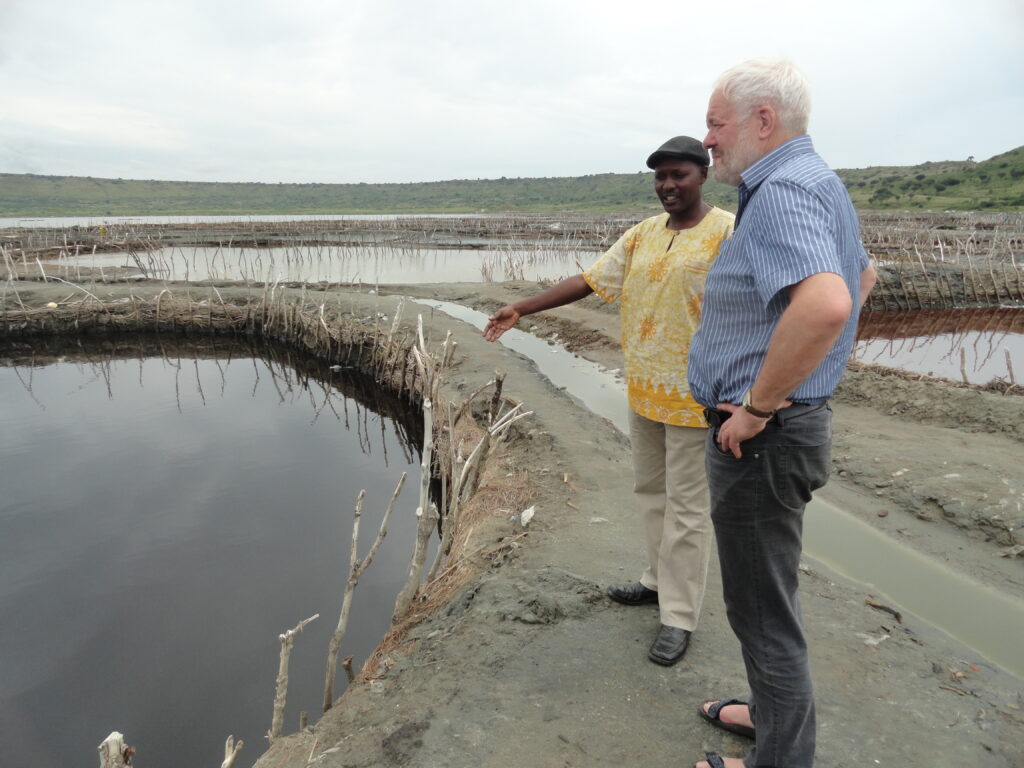
These tours can be charged separately or together as a package. I will quote the price of the salt mining experience. The others will be quoted on request.
Price per person: USD 10.00
Important Note: Accommodation to this holiday can be offered by the community in Katwe or any other lodges in and around Queen Elizabeth National park.
A day with a coffee farmer in the Rwenzori foothills will change your mindset about the coffee you take every day. From this coffee experience, you will realize that it is not just a cup of coffee but a ton of labor effort and love from one farmer in the country that wakes up every day to go and tend to the coffee plant for several years, selectively harvests, drys, and process the coffee been to suite your innermost taste.
this experience is on the way to Ruboni community camp. This farmer in Ihani village will take you on a coffee farming experience that can take from one hour to a full day based on your interest. It is the main livelihood in this area. They have mastered planning, harvesting, drying, grinding, and taking a cup of organic coffee every morning. you will also go through all these steps during our coffee tour.
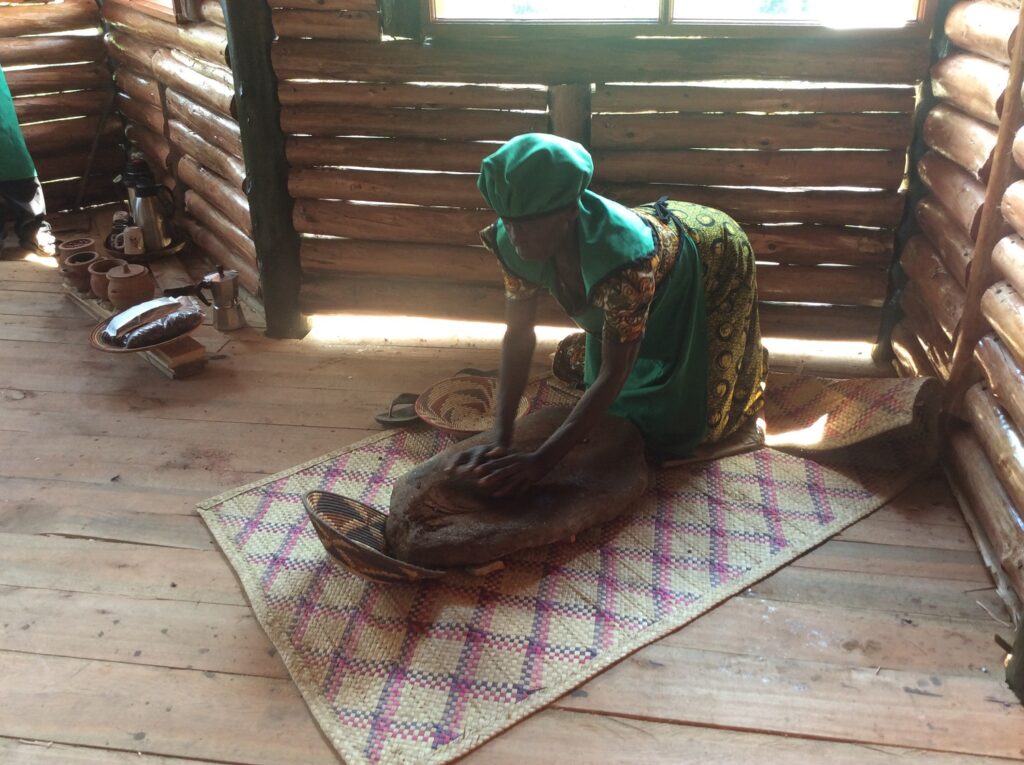
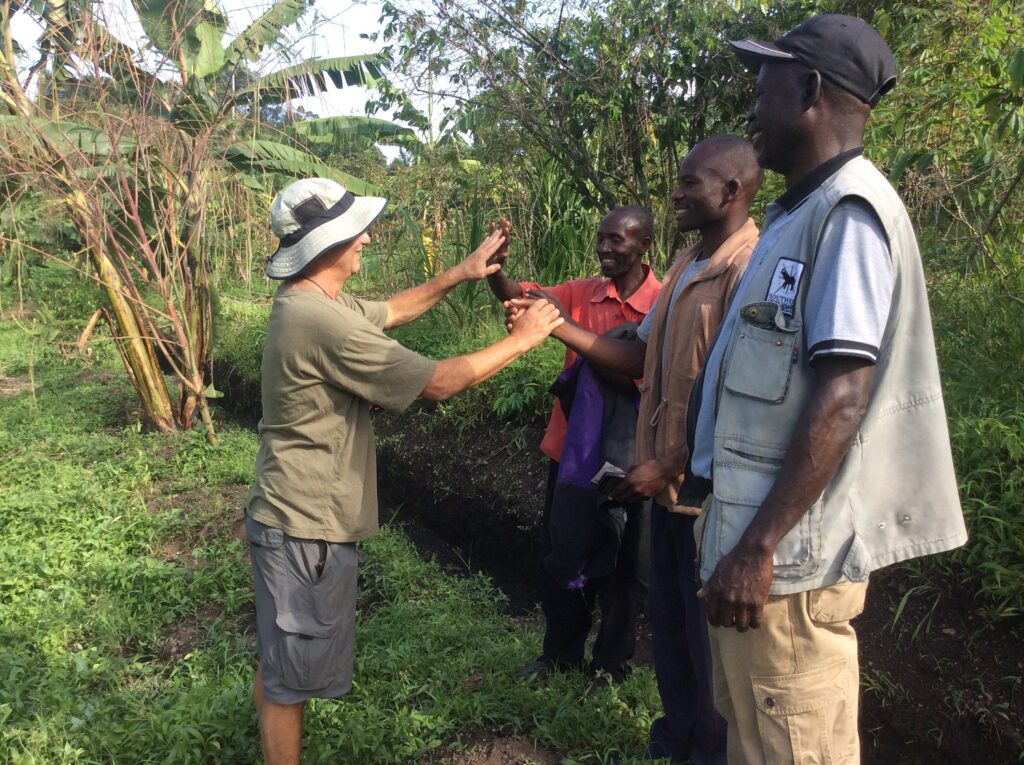
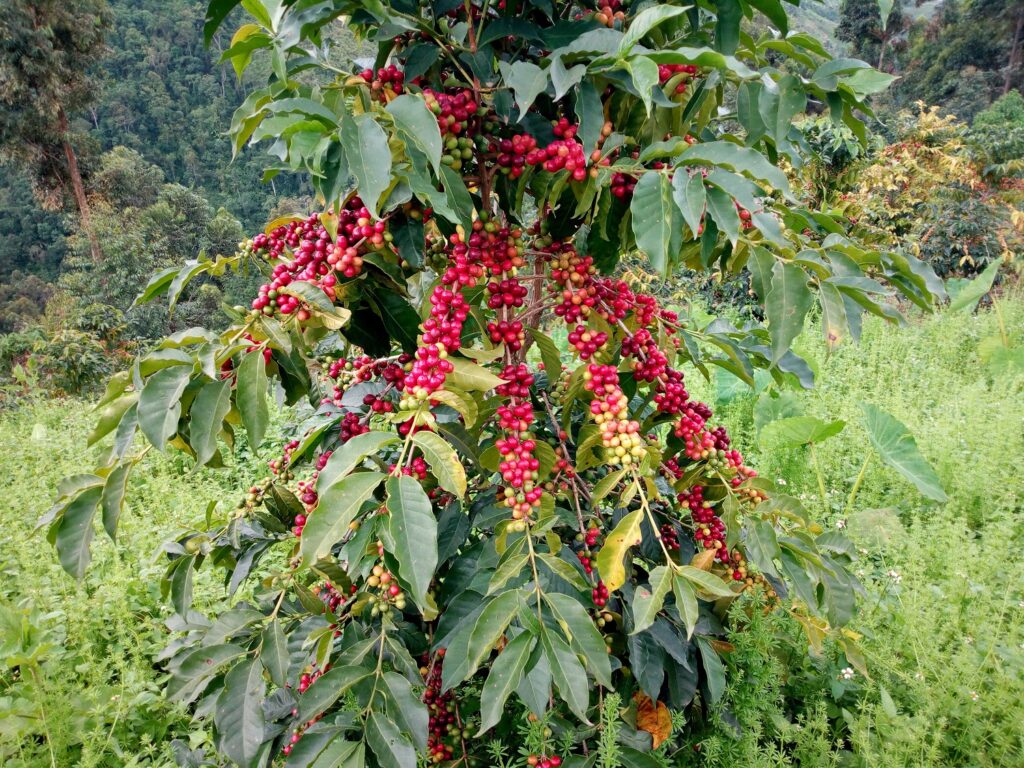
Stage 1 – Arrive any time between 7:00 am and 3:00 pm. You will be welcomed by the guide at the f-coffee house, who will give you a background of the coffee house project as he shows you the tools and items they use to farm and process coffee.
Stage 2 – You will be guided to the coffee gardens you start at the tree nursery, proceed to the tree gardens at the homes, and then to the demo garden before you reach the processing plant on a scenic hill. at each stage, you will participate in the local farming activity. the journey shows you the value of improved organic farming and how it increased the quality and quantity of coffee harvested.
Stage 3 – At the processing center, you will be shown the different ways of processing coffee to give the same organic cup of coffee. the different processes vary in length, level of activity, and preference by the market. you will get the reasons and advantages for each process as you participate.
Stage 4 – After you appreciate the journey of coffee farming, you will be brought to the traditional hut to make your own cup of organic coffee, the local way. This stage starts with an introduction to the local grinding tools which include the motor, pistol, and grinding stone. Grind your own coffee, heat the water on the traditional clay stove and then sip the well-deserved cup of coffee as you take the views of the surrounding mountain community.
after the cup of coffee you will head to the coffee shop where you can buy some to take with you, as you head to the Rwenzori mountains national park base camp where your trek will start tomorrow or to the next destination on your plan.
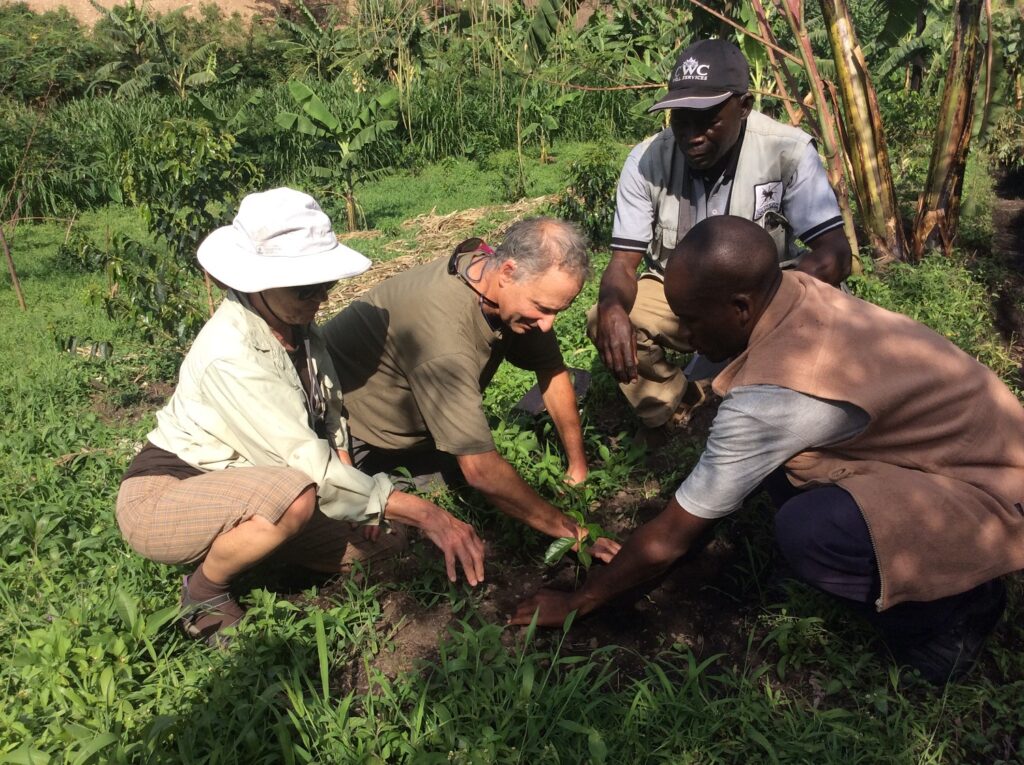
Price per person: USD25.00
Important Note: accommodation can be privately arranged at any accommodation at the gateway (7km) or in Kasese town (16km)
The beauty of the hills, forests, and waterfalls on this trek are irresistible when you choose to trek the Rwenzori through the Nyamugasana valley. You will be trekking through the coffee farms, homesteads, and other scenic trails used by the local people during their daily life in the Rwenzori foothills. Following the Nyamughasna river, you will soon cross into the natural forest and trek under the canopy, until you reach the spectacular twin waterfalls. It feels like paradise when you see starling birds flying in and out of the falls, where they live. Below the falls, there is a pool where you can choose to swim in the glacier-cold waters that flow from the Rwenzori Mountains. Enjoy your picnic on the giant rocks as you take the views of the rapids and falls from different viewpoints.
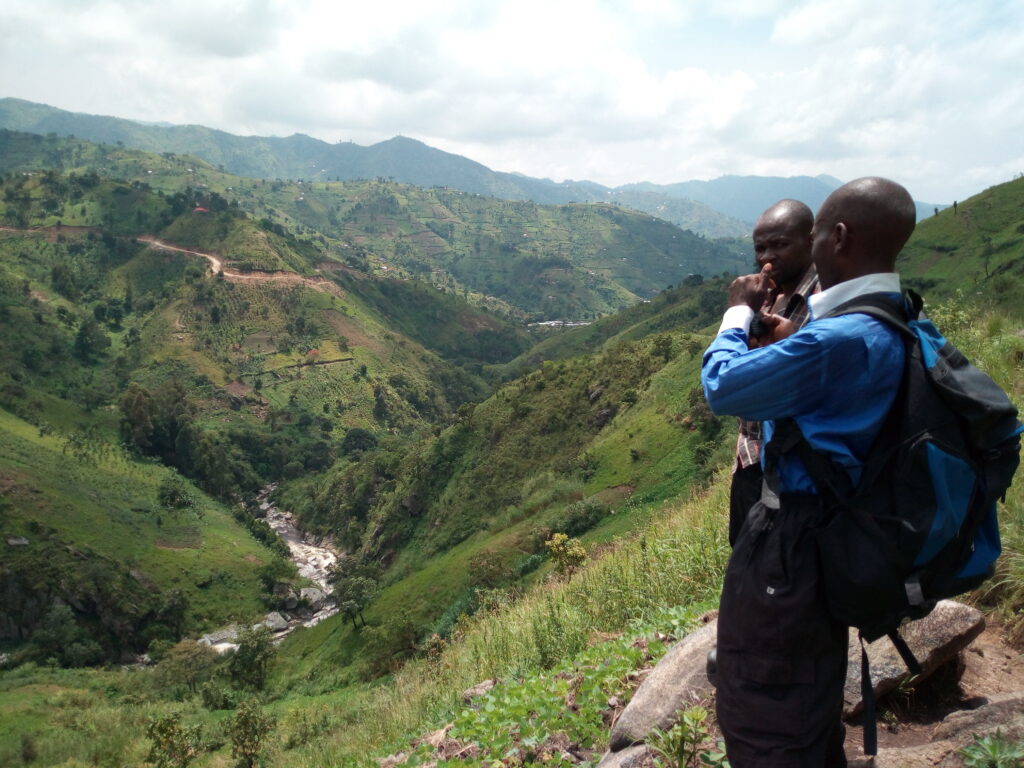
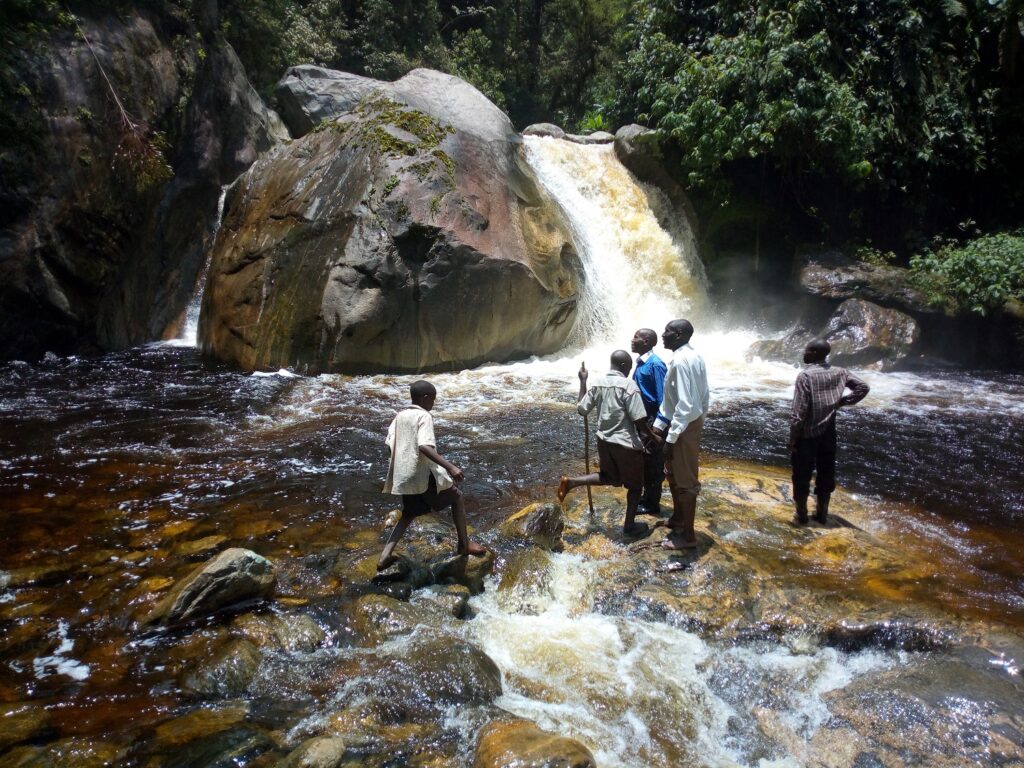
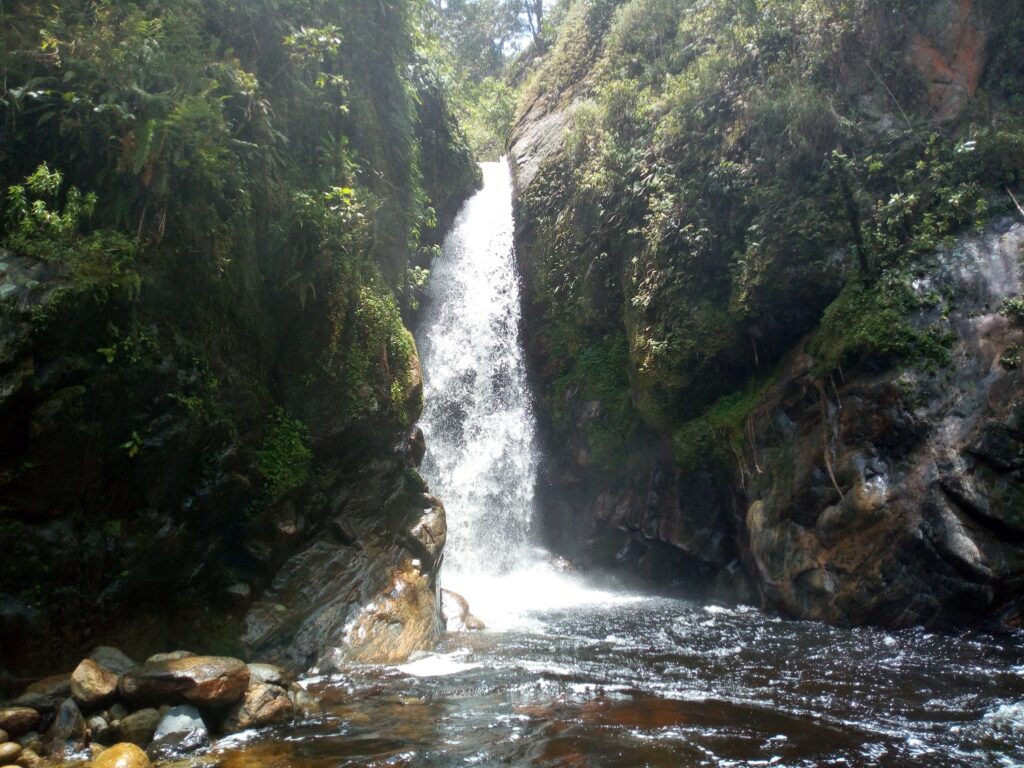
Stage 1. From Queen Elizabeth national park, Arrive at the Nyacomose office in Kyondo town council. You will be briefed by the guide and set your baggage for the trek. The best arrival time is early in the morning between 7:00 am and 8: 00 am.
Stage 2. Start the trek, latest at 9:00 am. you can choose to drive to the hills where the forest entrance starts. whether by walking or driving, the views are spectacular. You will be scanning the local hillside settlements and farms throughout this part of the trek.
Stage 3. At the end of the road, you will cross the river Nyamughasana and start the forest walk. Under the canopy, you will find varied plants, insects, and sometimes primates amidst the mix of river and forest sounds. The guide will be introducing you to the ecosystem to relate it to local life. This forest is home to the twin waterfalls that you will find at the end as you slope down into the river valley to meet the waterfalls and giant rock landscape in the river bed. You can also choose to have a picnic and picture moments at the waterfalls before you return to the community.
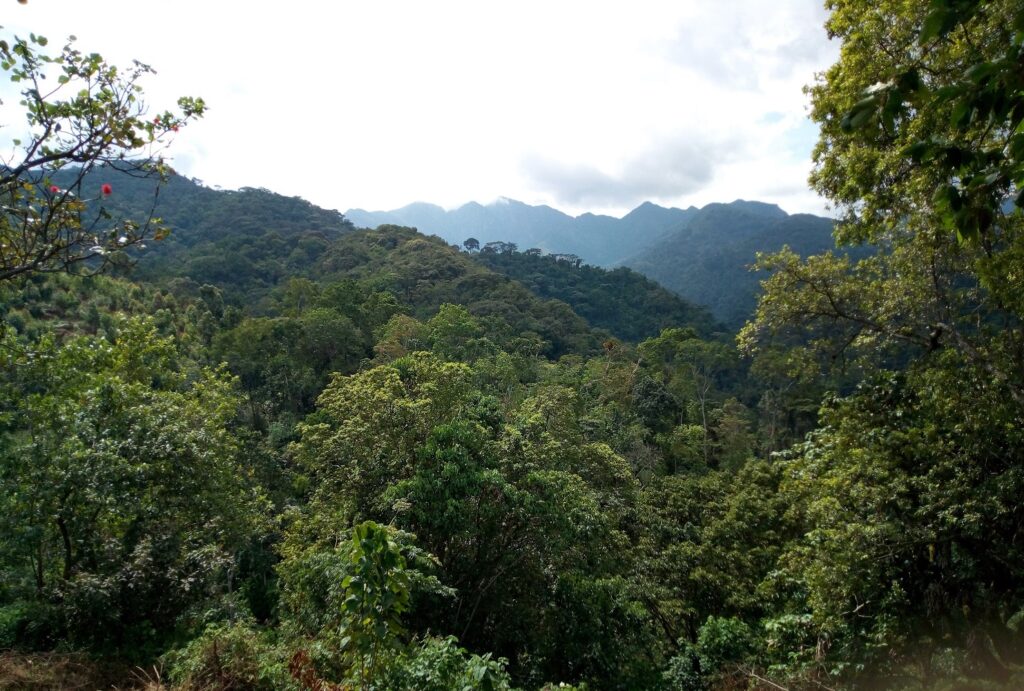
Price per person: USD 25.00
Important Note: Accommodation for this trip can be arranged in Kikorongo next to Queen Elizabeth National park, or in the local villages near the base camp.
Dave the Cave is an eco-lodge located in Nyanzibiri village. Nyanziibiri is a local Ugandan dialect meaning two lakes. The lodge is perfectly perched on the edge of the beautiful twin lakes; Kamweru and Chema, at GPS coordinates; -0.26082, 30.12364. It is a modest eco-friendly lodge with private guestrooms, dormitories, a camping ground by the lakeside, and restaurant facilities. Dave the cave has 6 wooden comfortable cottages with a capacity to accommodate up to 24 clients per night. Besides the beautiful nature and scenery around the lake, the traditional story of the two lakes and how they relate with the local people has inspired so many visitors. Overlooking Lake Kamweru, the lodge offers comfortable accommodation, delicious fresh meals, and nature-based short trips to this area neighboring Queen Elizabeth National Park.
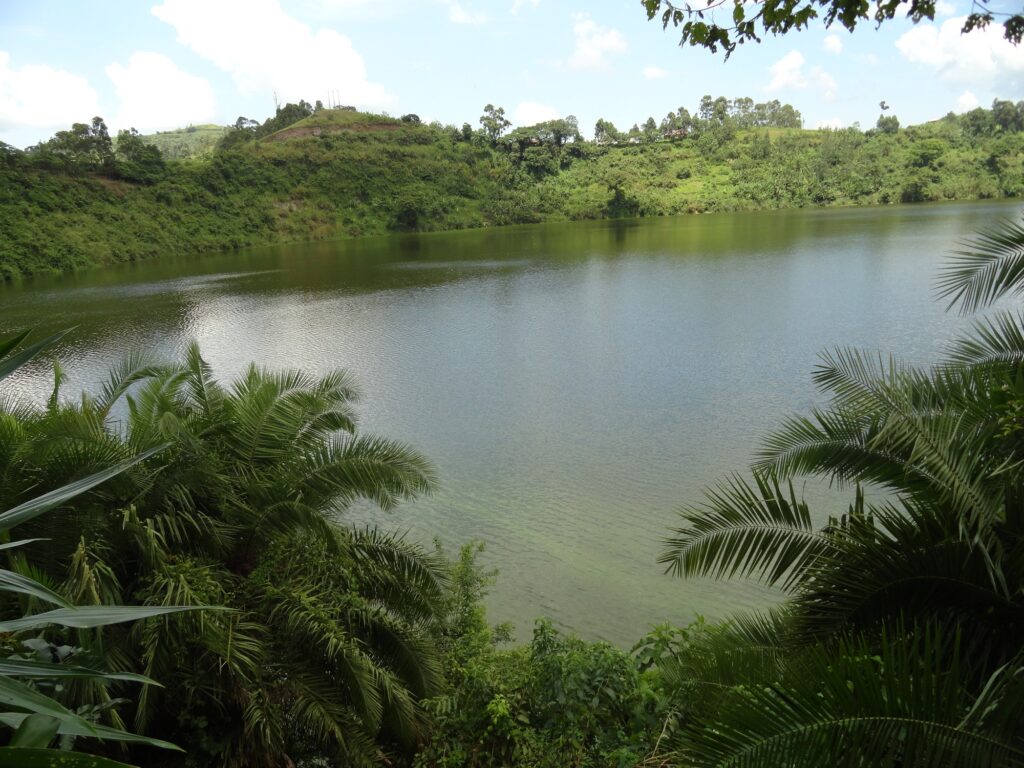
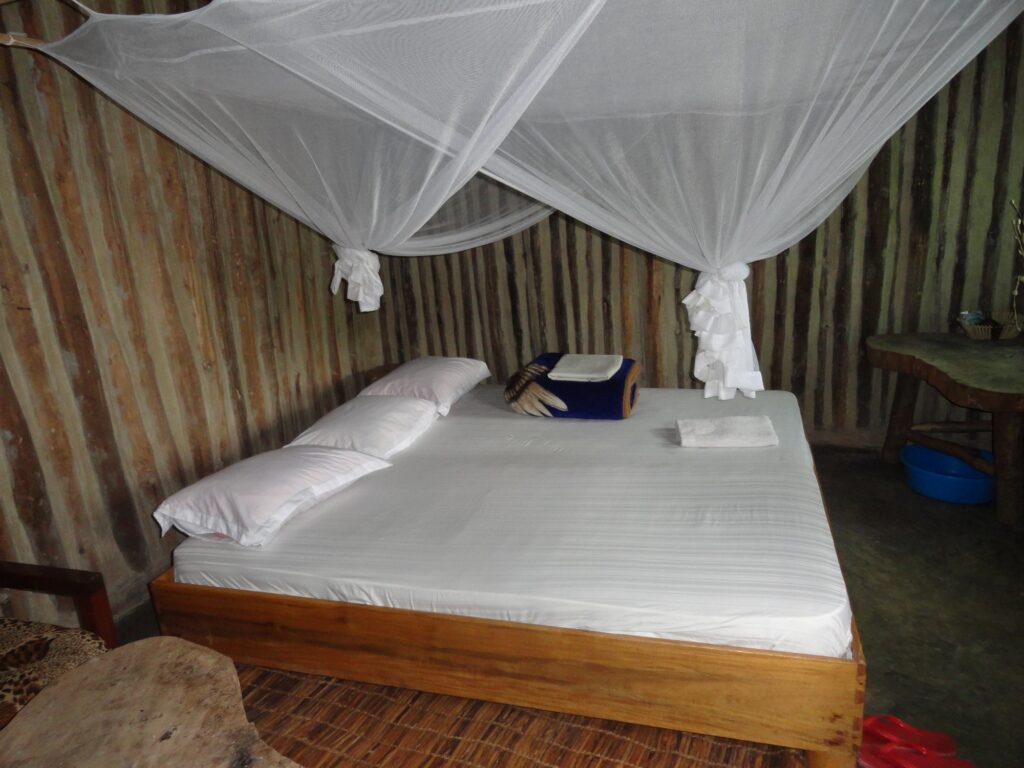
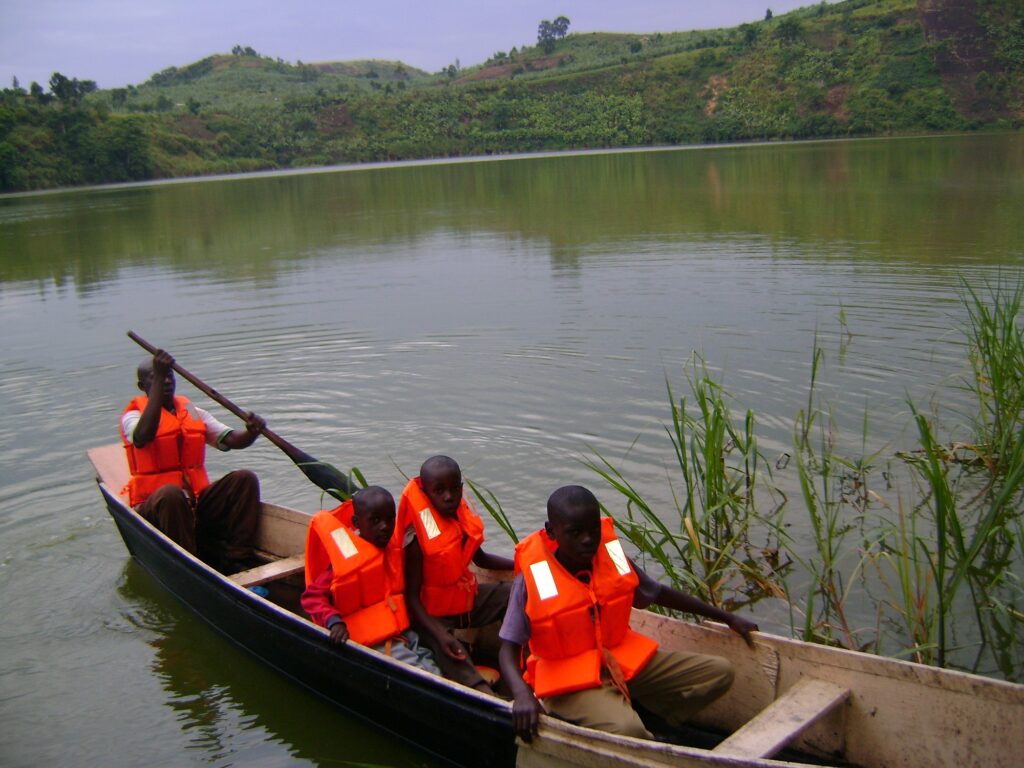
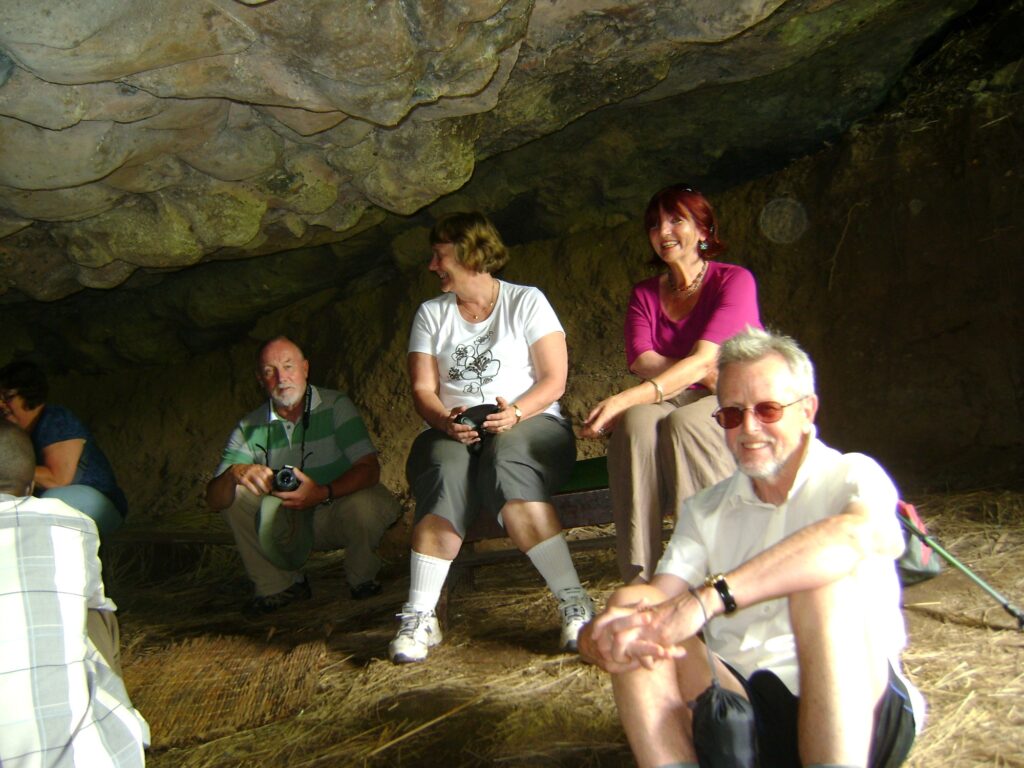
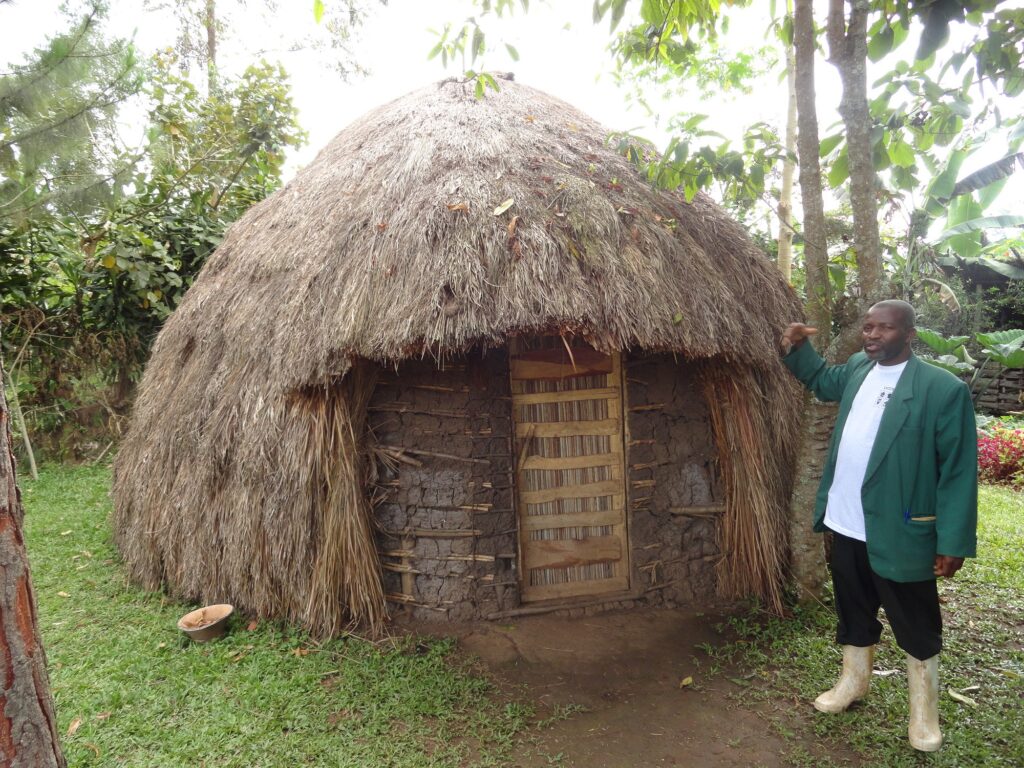
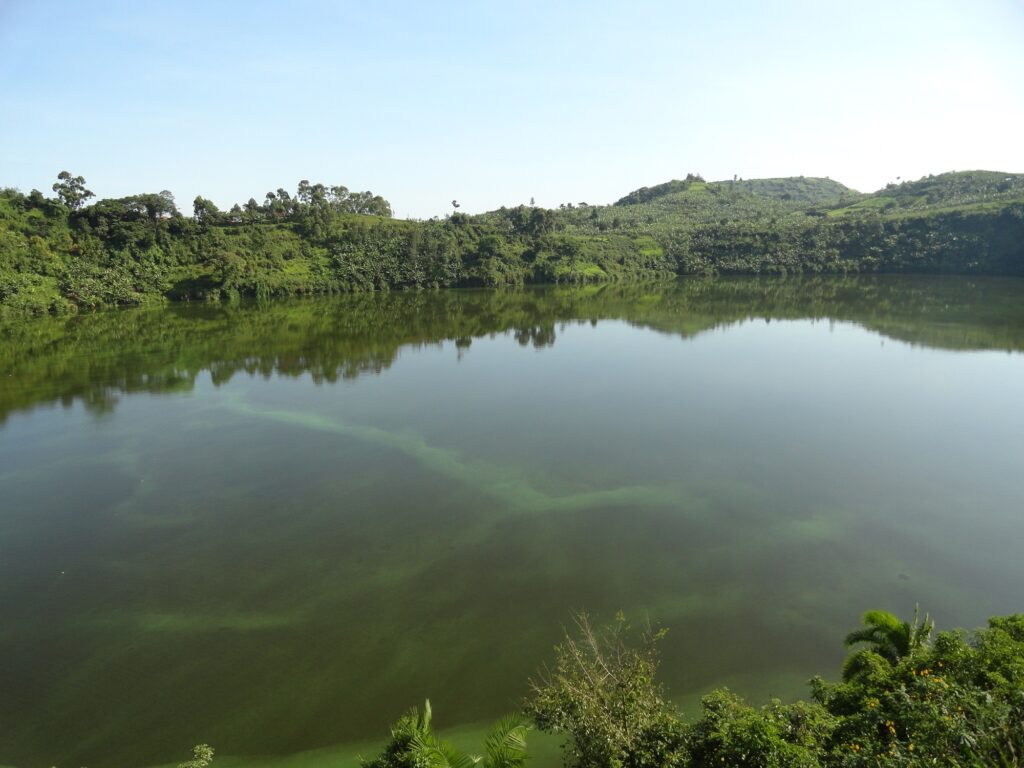
Why you must stay here
All travelers who are friends with nature must stay with us during their trip to Queen Elizabeth National park. The lodge is forested and is home to an abundance of wildlife such as monkeys, birds, butterflies, insects, squirrels, and other small mammals. In the lakes and wetlands, you will find fish and other amphibians.
The friendly staff offers a very high level of hospitality at the lodge, and on guided community excursions. The lodge is a perfect base for exploring the entire crater lakes area, with a long list of affordable walks and activities. The onsite mini-museum, forests, and herbal gardens offer guests an opportunity to explore nature and culture throughout their stay.
Dave the cave is a birder paradise with a list of over 120 bird species. A balcony in each room offers the best views of Kamweru lake and the surrounding wildlife. We also have abundant camping grounds with both the lake view, hill view, and bush camping. The lodge also offers some camping gear for hire when needed

Highlights